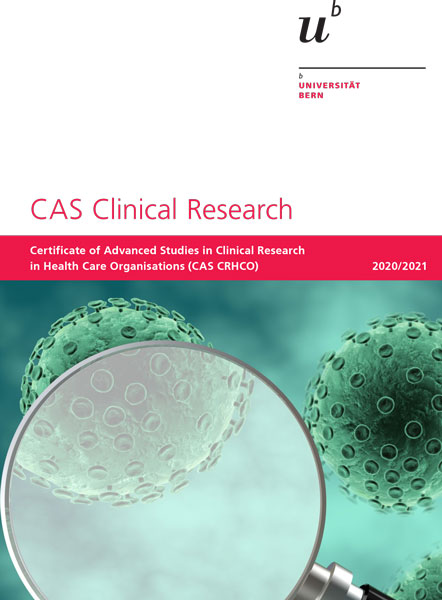
Basic modules
1. Introduction to Epidemiology and Study Designs
Definition and functions of epidemiology, key indicators (incidence, prevalence, relative rate, relative risk, risk difference) and concepts (bias, confounding, interaction, causality); introduction to the most important clinical study designs: case-control studies, cross-sectional studies, cohort studies, experimental studies.
2. Basic Biostatistics
This covers descriptive data analysis and the concepts of statistical inference (random variability, confidence intervals, dealing with probability, P values).
3. Fundamentals of randomized controlled clinical trials
Principles of randomization; sources and prevention of bias (concealment, blinding, intention-to-treat analysis); endpoints, treatment effects, and estimand framework; safety, data monitoring committees, and principles of interim analysis; per-protocol versus intention-to-treat analysis; principles of non-inferiority trials; critical evaluation of published randomized controlled trials.
4. Introduction to Statistical Software R and Electronic Data Capture Software REDCap
Part 1 includes an introduction to R, reading in, modifying, and managing data sets, data control and management, preparing graphics, carrying out descriptive analyses and simple statistical tests. Part 2 is an introduction to the electronic data capture system REDCap, and allows the setup of a simple survey or study with the most important question types.
5. Biostatistics II (Regression Models in Clinical Epidemiology)
Using R, this course covers practical applications of the most commonly used regression models, i.e. linear, logistic, Cox proportional hazards, and Poisson regression.
6. Diagnostic Studies
Dimensions and indicators of diagnostic accuracy (sensitivity, specificity, diagnostic odds ratio, likelihood ratio, accuracy, ROC curves), statistical and clinical epidemiological definitions of normal values, the architecture of diagnostic research designs.
7. Prognostic Research: Concepts and Models
Types of prognostic studies and factors (quality of care, biomarkers, multivariable models), and study types and limitations in the conduct and analysis of studies of prognostic factors. Development of multivariate prognostic models, and internal and external validation; clinical and public health impact of the use of prognostic models in connection with personalized/stratified medicine; critical evaluation of published prognostic studies.
8. Systematic Reviews and Meta-Analysis: A practical Approach
The advantages and disadvantages of narrative and systematic reviews, principles and procedures for conducting a meta-analysis(random effects, fixed effects, meta-regression), limitations of systematic reviews and meta-analyses of randomized and observational studies, publication bias, critical evaluation of published reviews and meta-analyses.
Elective modules
Elective modules will allow participants to use their own interests to deepen and broaden the content of the basic modules. Participants may choose to either attend the elective modules offered by the CAS Clinical Research, or replace them with a course of their own choosing.
The two elective modules offered by the CAS Clinical Research include topics like advanced statistical and epidemiological methods, health technology assessment, writing research proposals, and publishing scientific articles. The elective modules offered through the CAS Clinical research are included in the course fees.
Other courses at Swiss or foreign universities can be attended at the student’s own expense. For credit towards the CAS diploma, the course must be approved in advance by the Course Directors.
Elective Module 1: Writing a Study Protocol
Different types of protocols (study protocol, grant proposal, submission to ethics committees) and to get them written and sent.
Elective Module 2: Swiss Epidemiology Winter School
The Swiss Epidemiology Winter School offers various courses covering topics such as Observational Epidemiology, Randomized and Non-Randomized Studies, Climate Change Epidemiology, Writing a journal article, Statistical Analysis with Missing Data Using, Multiple Imputation and Inverse Probability Weighting, Competing Risks and Multi-state Models, Clinical Trial Design and Methods in (Network) Meta-Analysis – A Practical Course in R.
Further information can be found on their website: https://www.epi-winterschool.org/
Participants who choose to attend the Swiss Epidemiology Winter School as one of their elective modules, may attend one of their courses without additional cost. Accommodation, transportation and meals are not included.
Choosing a different course to replace the elective modules
Participants who would like to attend a course of their own choosing for the elective modules may do so. In such cases, the additional course fees have to be covered by the participants themselves.
Courses may be chosen from any Swiss or foreign university but must be approved in advance by the Course Directors. Please contact the program coordination office for approval of your chosen courses: casclinresearch.ispm@unibe.ch
The two elective modules together must equal 2 ECTS.
Courses approved as Elective Modules (list is not exhaustive):
SSPH+ Course Program:
- Basics of scientific writing in English: A structured method for organizing and writing better, faster papers
- Introduction Into Multilevel Modelling of Clustered Data
- Missing Data in Observational Epidemiologic Studies Including Non-detects
- Introduction to Health Economics
- Qualitative Health Research: BASIC module: Defining and developing qualitative research in public health
MPH Course Program:
- Gesundheitsökonomische Modellierung – Hands-on
- Evidence-based Public Health using the GRADE approach
- Gesundheitsökonomie
Other modules must be approved by the program director.
